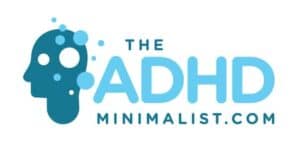
I grew up in the USA, but I met my husband in Sweden 17 years ago. We were married a year later.
Living in the Swedish mountains, having three kids, and learning to speak Swedish has given me a multicultural approach to raising kids.
My daughter Maria (11) has ADHD predominantly inattentive, and my son Lage (14) has ADHD predominantly hyper.
They have a younger sister Frida (6) who started school this year (in Sweden they start school at age 6). We asked her teachers to keep an eye out in case she needs to be accessed as well.
Kids who have ADHD may need help selecting extracurricular activities that simultaneously suit their personality and their special needs.
Many ADHD kids have trouble reading social cues and struggle to make friends. Finding an activity and a group of kids with the same interests who can accept ADHD kids for who they are can make a world of difference!
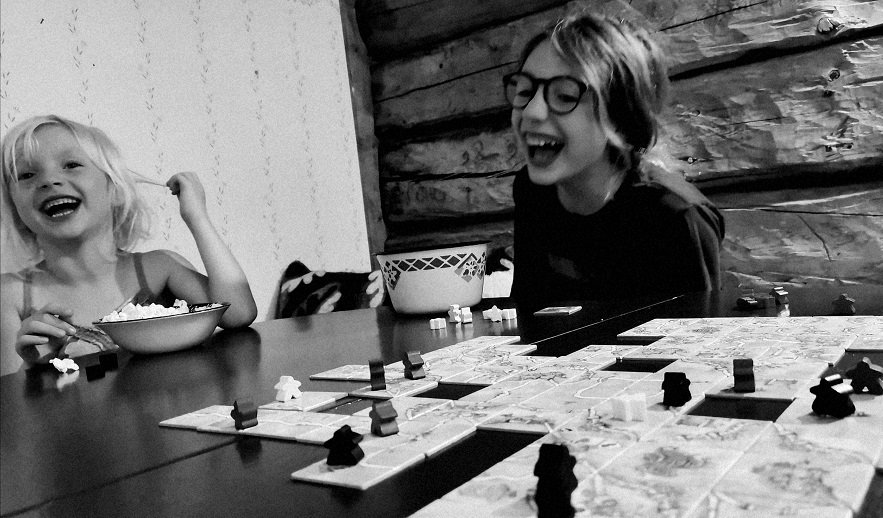
After school activities can:
- Boost confidence
- Improve social skills
- Foster independence
- Give opportunities for friendships
- Help kids set goals
- Improve executive functioning skills
- Boost self-esteem
Often ADHD kids have poor self-esteem and feel that they are not good enough. This can be overcome by finding activities where your child can excel and make lasting friendships!
(Note: ADHD kids also need noncritical attention from their parents and other important adults.)
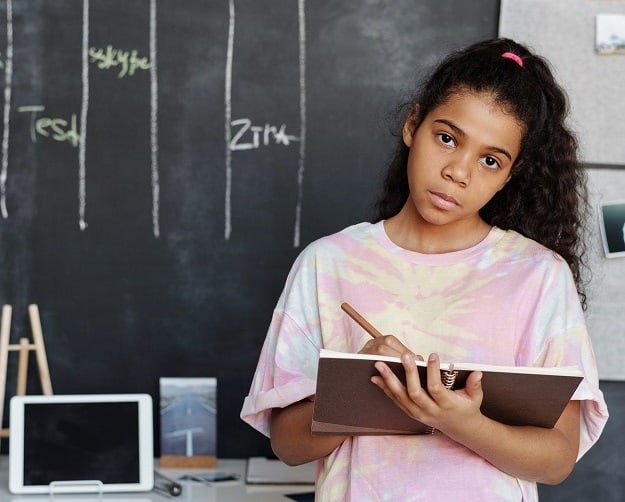
Reasons for poor self-esteem can be because. . .
- They were often corrected/disciplined and told NO growing up.
They may have needed correcting, but often ADHD kids do not purposely forget things or plan to cause mayhem.
Many times ADHD kids don’t understand why they did what they did or why they are being punished for it. This hinders learning from mistakes and increases the number of times they are corrected.
Often Kids with ADHD have siblings who do not have ADHD, and they realize at an early age that their brothers and sisters are not getting in trouble nearly as often. This automatically translates into a feeling of inferiority.
- Adults often compare Children with ADHD to their non-ADHD siblings.
Parents may do this without realizing it before their child receives a diagnosis. and many times extended family and other important adults make comparisons as well.
Caring adults wouldn’t intentionally hurt a child, but often we forget the power our words carry.
- Kids overhear daycare workers, teachers, Sunday-school teachers, coaches, babysitters, and even grandparents comment about them and their bad behavior.
Many times mom or dad needs to hear how their child behaved that day, but it would be so much better if it could be done in private.
Often grown-ups forget that small children are in the room or we don’t realize how damaging our words are.
- ADHD kids often don’t do well academically. They compare themselves to their friends at school and they feel that they come up short.
- A nagging feeling of not adding up, a perception of being an outsider, a sense of never knowing what’s expected socially, and an awareness that they are failing at everything normal!
This is how several people with ADHD described an inner sense of anxiousness that they never seemed to get rid of. It’s a shame that our society tries to pull everyone through the same comb (as they say in Swedish) of course not everyone will fit!
Helping your child find areas where he/she can excel is crucial! Kids with ADHD need to feel they have a safe haven where they can fit in and excel!
Finding this haven can boost kids’ self-esteem and confidence, which impacts their life goals and what they believe they can achieve.
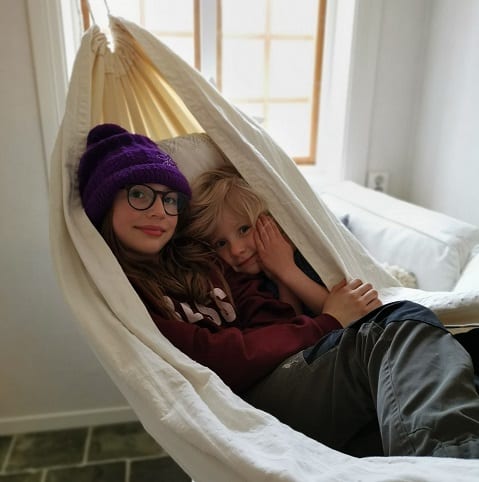
Before you start!
Before you decide what kind of teaching arrangement is best for your child. You need to ask yourself why you want your child to do________.
- Is it because your child loves that activity and he/she wants to learn for the sake of learning?
- Do you want your child to learn baking, singing, horseback riding, ect because your child needs to make friends?
- Is working on social skills the main point of the activity? Does your child need to work on social skills with other children their age or with adults?
- Is the main point of the activity for your child to build a stronger relationship with grandma, grandpa, an Aunt or Uncle, or a close family friend?
- Do you need your child to have an after school activity because you work late?
- Is your child excessively clingy and you or your spouse need to get a breather and some self-care? (This is ok to admit! You will be a better parent if you take short breaks from your kids and do something that builds you up each week!)
The answers to these questions will help you find the right activity!
If your child needs to make friends their age then asking the neighbor to teach piano lessons (which are often taught one pupil at a time) may not be the best fit!
If your child needs to improve their relationship with grandma because he/she will be staying at grandma’s house when you go on a business trip then a couple of hours at grandma’s every week is the answer!
You can’t find the answer if you don’t know what the actual need is!

ADHD kids are often developing at a slower pace than their peers.
Signing your child up for activities where there is a range of ages among the participants may give him/her a better chance of finding a friend.
My son and daughter both played with kids a year or two younger during different periods in their lives. This is ok.
Your child may click better with kids a year younger one year, and the next year click better with the kids in his/her class.
Kids are always growing and changing. Even kids that do not have diagnoses mature at different rates. Your child may hit it off with a best friend one year only to find that their friend hit puberty early and they suddenly have trouble finding common ground.
My advice is to try your best to stay in touch with kids that your child hits it off with.
That may mean trying to get to know the friend’s family. If your child hits a rough spot in their friendship this can be a lifesaver.
You can keep the relationship alive by periodically inviting the entire family over for dinner.
That way it’s not awkward when your child starts maturing and wants to reconnect with his/her friend.
I have many years of experience putting my kids in activities and taking them out again! Often because it wasn’t a good fit!
When my daughter finally found some activities that she liked and excelled at I breathed a sigh of relief!
This post focuses on extracurricular activities. If you want to read more about finding a great sport for your ADHD child you can check out the post below which is only about sports.

Scouts
Often in the USA Girl Scouts and boy scouts are the most common scouts groups for kids to join. In Europe, there is a wide variety of scout groups. Some are church-based and some are sponsored by the community or other organizations.
My daughter loves scouts. In her scouts’ group, they regularly go camping, climbing, and sledding, as well as doing crafts and learning outdoor skills.
I believe scouts can be a good fit for kids with all types of ADHD. Many kids with ADHD enjoy the outdoors and need physical activity like hiking to burn off extra energy.

When deciding which scout group is best for your child you need to take into consideration if your child has ADHD hyper, ADHD inattentive, or ADHD combined type.
- If your child is extremely hyper like my son, a scouting group that does some harder hikes and tries new challenging outdoor activities may suit him or her best.
Lage had a hard time sitting still and would spend extra time chasing other hyper kids around when there was a lapse between structured activities.
The leaders soon learned that unstructured time led to rambunctiousness, and it was harder to get the kids back on track than to make sure they had extra activities planned so there was no downtime.
- Kids with ADHD inattentive like my daughter usually enjoy a mix of physical activity and hands-on learning.
Maria can sit and concentrate if she thinks the activity is fun. This can include crafts, learning to tie knots, or whittling/wood carving at scouts.
She can sit still without bothering other kids if the leader is explaining, telling a story, or making announcements, but if it doesn’t capture her attention she may zone out.
Leaders need to be aware that they may need to check with ADHD kids on a one on one basis and ask the child if they understand the instructions.
- Kids who have ADHD Combined type may need a mix of physical activity and calmer activities during each Scouts Group.
I do not have a child with combined type ADHD, but I have friends who do. They explained to the Scouts leaders that if their child was having trouble an adult may need to take him outside for 10-15 min and then let him rejoin the group.
The most important thing when choosing a scouts program is that the leaders have an understanding of ADHD and that they are willing to put in the effort to understand and help your child.
Putting your child in any activity, where the leaders don’t understand your child’s needs, or when leaders get easily frustrated with your child’s behavior, can do more harm than good.
From time to time, I meet adults who refuse to believe that ADHD exists! People with this kind of attitude can not help ADHD kids!
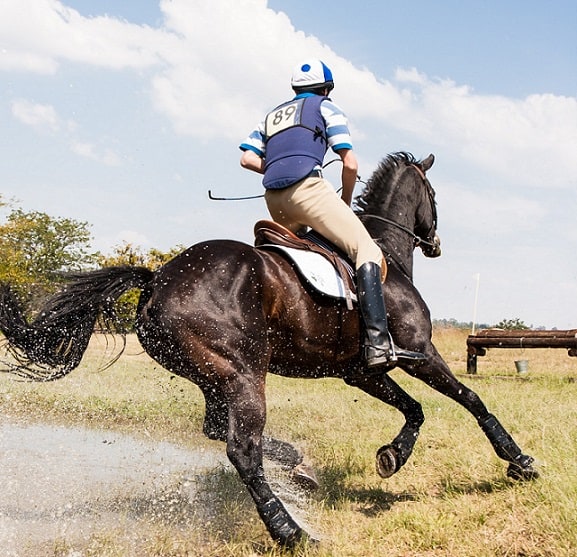
Horseback riding
I signed my daughter up for horseback riding several years ago, but she never actually started training.
The Stable nearest our house took the application forms and then made groups of children determined by what age and what level they were at. This meant that I didn’t know what day of the week the training was on until after we signed up.
I ended up thanking them and giving my daughter’s spot to someone else because horseback riding ended up on the same day as her Judo class.
She loved Judo and didn’t want to quit.
My daughter likes animals but doesn’t have this innate love of horses that many girls her age do. In the end, Judo was a much better choice for her, but I believe that many children with ADHD predominantly inattentive would thrive around horses.
Our neighbors have horses, so my kids do ride from time to time.
One thing to ask when choosing a ranch or stable to begin riding lessons at is how much support is required from the parents.
Some riding clubs require that parents work a certain number of weekends per year taking care of the horses for their children to attend lessons. These clubs usually have a cheaper entrance fee.
On the other hand, you can always find a ranch or stable with a higher fee that doesn’t require any work from the parents.
Where we live parents are required to accompany their kids to lessons about basic horse safety and horse care before their child can begin riding lessons. This is approximately 10 lessons that a parent needs to be present at.
If your child has an extreme form of ADHD or extra problems/diagnoses accompanying their ADHD you may want to look for a ranch that does equestrian therapy for special needs kids.
Some of these stables geared towards horse therapy may even have a riding group for ADHD kids. If you have a ranch or riding club for special needs kids near you check it out first.
Being in a riding group with other kids their age who struggle with similar diagnoses can be a great way for your child to make new friends, and those who work regularly with special needs kids will have a wonderful understanding of you and your child!

Baking or cooking classes
My daughter who has ADHD inattentive (ADD) Loves to bake. She has a hard time reading the recipe even though she is 11 years old (Some of her reading problems stem from the fact that she is also extremely dyslexic), but she does well with picture-based recipes.
She wants someone to help her the first time she tries a new recipe. After that, she likes to try on her own. Sometimes she will ask me if I can read some complicated text, and sometimes her baking flops, but that’s ok!
My son who has ADHD hyper went through a phase where he often baked cake and Cinnamon rolls at home. He was honestly better at baking cinnamon rolls than I was!
His grandmother taught him. It was easier for him to listen to her instructions than to my husband and me when we tried to bake with him!
After he learned he wanted to bake by himself.
Often kids with ADHD are more willing to listen to instructions from someone other than mom and dad. That’s probably because as parents we tell them no and correct their behavior more than anyone else.
That’s not wrong, but we need to make sure that kids are secure in their relationship with us so they can receive our corrections.
This means that our kids need to get our undivided attention and to do special things with us where the point is to build relationships, not to correct behavior.
Dr. Gabor Maté goes into depth on this topic in his book Scattered Minds. You will find the book and other books we recommend on our resources page. Click below
Finding a cooking or baking class near you for children may be a fun option. Usually, baking or cooking classes can give your child good social interactions with peers.
You may want to ask any amazing cooks and homemakers that you know to teach your child. Try arranging weekly lessons.
Don’t forget to ask yourself if the point of the lessons is to…
- Learn cooking
- Make new friends
- Build a better relationship with a trusted adult
- Or some other idea or goal.
The answer will help you find the best learning environment for your child.
If you don’t have a cooking/baking class near you and you don’t have a close friend or family member to ask, you may want to offer to pay an acquaintance a wage similar to the hourly rate of piano lessons.
Baking usually takes some time especially when your creation is in the oven, so schedule at least an hour and a half for a baking/cooking class.

Music lessons
My daughter takes violin lessons and my son takes piano lessons. He even tried guitar a couple of years ago but switched to piano lessons because he wanted to play the synthesizer.
They are not very good at practicing at home and my husband and I are not very good at reminding them!
I finally had to ask myself what the point of lessons was.
My daughter will never be a professional violinist, but she has taken lessons for 4 years and she enjoys them even if she forgets to practice. She can learn social skills from her teacher, and learning new songs even when she does it very slowly can improve executive functioning skills.
I decided that music lessons were good for her even if we don’t always fit practice in after homework.
My son has musical talent but isn’t very motivated to practice. I believe that he could do well as a musician making unique songs for YouTubers to use as intros. (This can be a profitable hobby.)

But, the more I read about kids and music it seems that there is no better way for me to kill my son’s interest in music than to daily nag him to practice.
I noticed early on that my son does things in phases. (This may be a trait of kids with ADHD predominantly Hyper. My daughter found some activities that fit her and she has been doing the same activities for several years now.)
Lage can get extremely interested in baking, building treehouses, computers, music, or whatever sparks his interest for the moment and then he moves on to the next thing. (Almost like he hyper focuses on an activity until he feels like he can do it well.)
Sometimes, but not always, he will revisit an interest and dig deeper into the skills that are needed for that activity.
My husband does this too, and when we were newly married I thought it was weird because I kept the same hobbies for years! He would go all out and learn a new sport, or skill like becoming an apprentice to an electrician for several months, he would learn how to cook a type of healthy food, but when he felt he had learned that skill he would drop it like hot marbles and start something new!
In the end, the accumulation of his love for learning new things has added up to an impressive resamé. He started his own business and put many of the skills that he learned over the years to good use!
His business’s insurance agent recently laughed when he called to add removing snow from roofs to his list of insured activities!
Besides shoveling snow, he is an accountant, a mountain guide (he takes groups climbing, hiking, caving, and kayaking), an underwater construction diver, a builder, and a general repairman who fixes everything from leaky faucets to wood-burning stove pipes! In other words, he DOES NOT get bored at work!
I have learned to let the men in my life learn what they are interested in at the time.
I am encouraging my son to continue with his music lessons, but I am not making a big deal out of whether or not he practices at home.

Voice Lessons
When I was a kid I took voice lessons. I thought it was fun to sing. Even Though I don’t have a great talent for singing I enjoyed singing in a choir in junior high and high school.
Most little girls like to sing. I don’t know if it’s a Disney Princess Musical phenomenon or what, but my girls sing a lot at home especially when they don’t think anyone is listening!
I haven’t tried voice lessons on any of my kids. I enjoyed my lessons, and I was a kid who had trouble sitting still!
(Fidgeting was a big problem for me. When I needed to sit still and listen to the teacher or my mom read a book I drove everyone nuts because I would click my fingernails together or pick at my cuticles till they bled! I even got a staph infection under my fingernails twice because I couldn’t stop this behavior!)
The cool thing about singing lessons was that we were asked to put one hand on our bellies and one behind our backs while we sang. Our teacher wanted us to feel our diaphragm, so we could tell when we were breathing correctly and when we weren’t.
Learning to sing with the correct technique was helpful when I joined a choir. Our choir director didn’t have time to make sure everyone was singing correctly, so those of us who had some training caught on quicker.
My mom paid a friend to give me voice lessons. Our family friend sang throughout high school and college and kept up her singing in adulthood by singing at weddings and church.
I believe my mom paid her 20 dollars a lesson back in the 90s!
A friend of mine wanted to take voice lessons too and we decided to take them at the same time. This made what is usually a one on one time with an adult social in more ways than one.

Choir
My school had a choir which I joined in the 7th grade. This was fun partly because it was social, but also because we sang fun songs.
If your child’s school doesn’t have a choir often there are community choirs or church choirs that kids can join.
Often older kids stand very close together while they sing which can lead to ADHD kids poking and prodding each other, but they also need to…
- Pay attention to the choir director
- Sing
- Hold their music
- Read their music if they haven’t already memorized it
- Possibly have one hand on their diaphragm
Usually, these combinations of things will keep kids busy enough to keep their hands off their neighbors.
A choir can teach some good social skills and be a great place to make friends.

Drama class
Join a school drama club! In the USA there are Drama Clubs at most schools where kids can compete on short individual and duo dramas.
This was one of my favorite activities growing up!
You can compete with short, well-choreographed, memorized, dramas or sign up to draw a topic out of a hat and have a set amount of time to come up with a skit together with a partner.
Drama can be a good match for some ADHD (ADD) kids. It depends on what type of personality they have and what their interests are. This will not be a great fit for all ADHD kids.
Kids with ADHD are just like all other kids. They have individual
preferences and personal interests.

Join a Musical
Join a musical production as an extra or try out for the main part! Where I grew up in the States we had musicals at Schools and the community Opera House.
The last time I was back home my husband and I went to the community production of Fiddler on the Roof! The volunteer actors did an amazing job!
Most community productions hold open try-outs for anyone who wants a shot at a part. They also need many extras who dance and sing, but may have no speaking lines at all!
Musicals are more fun for ADHD kids than plays because they often have several group scenes with dancing and singing that require high energy. Often the bulk of practice time is dedicated to these choreographed group scenes and the kids with major parts are left to do much of their memorization work at home.
If your child likes to sing this can be a fun way to interact with others. One of the benefits of joining a musical production is that musicals require people of all ages and your child will meet kids and adults of a variety of ages.
When my son was younger he had more friends that were a year or two younger than him and just a couple of friends his age. This is a common occurrence because ADHD kids are often developing later than their peers.
Finding activities where there is a range of ages among the participants can be a great way for ADHD kids to make new friends!

Multi-sport athletic clubs
(This may be more common in Europe)
Training where the purpose is physical activity and not a particular sport can be a way to mix things up and keep your child from getting bored.
In Sweden, we often call this Everything Training (direct translation from Swedish). Usually, these clubs try a new sport every week, but it can include work out forms that are not considered a sport.
The focus is on giving kids a positive experience with physical activity.
Sometimes Swedish parents organize neighborhood Multi-sport activities for any kids who live in the area who fall into a certain range of ages like 5-7-year-olds or 8-10-year-olds.
If you can’t find an activity that suits your child you may need to put in some time organizing the neighborhood children once a week! This is a great way to get to know your neighbors.
Because ADHD kids often get bored and need to burn off extra energy this may be a good fit.

Dance
Although dance is not officially a sport, competitive dancing (Dancesport) was considered for inclusion in the Olympics but is still not included in the world of sports.
Dancing whether it’s on a dance team or with a ballet company requires physical fitness, learning moves, extreme flexibility, and practice.
The argument against dance being considered a sport is often that everyone can dance. While this is true some people dance much better than others and some forms of dance are impossible for the average Jane Doe to perform without extensive training.
I should know. I went to a performing arts school after high school and toured during the summer in Las Angeles with my class. We mainly performed hip hop, but we had a few ballerinas who added some spice to our performances.
During school, we were all forced to take ballet classes even though most of us would never make good ballerinas. I know from experience not everyone can do every dance!
Dance is often girl dominated, but it can be just as fun for boys to take a dance class.
Boys often have the advantage of having few other males to compete against within a dance team and may receive special roles in performances early in their dance career simply because the world needs more male dancers.
You may think that dance could be bad for ADHD kids because there are a lot of moves to remember, but often after many practices the moves become automatic and there is no need to think about each individual movement.
When learning a new dance ADHD and non-ADHD kids are all in the same boat they start at the beginning and repeat the moves until they work out all their mistakes.
If your ADHD child feels like the rest of the class is catching on before they do encourage them to practice at home. Often kids think dance is so fun that it’s not a burden to practice, but they may need you to remind them to practice.
If your ADD child is anything like mine there are a lot of good intentions, but she forgets to do things even though they are important to her.
She is now old enough to recognize her forgetfulness and ask for help.
Your child may need a mirror and some space to practice. If you can sort out a place to practice at home where he/she can play loud music, jump around, and not knock things over this would be ideal.

Swimming
My kids love to swim!
Swimming can be beneficial for ADHD/ADD Kids even if they are never interested in swimming as a sport.
Even Though My daughter who has ADHD (predominantly inattentive) had a hard time learning how to swim she always loved the water and was determined to master swimming!
She is now a good swimmer and she wishes we could swim more often than our schedule allows.
I am not sure if struggling to swim is a common phenomenon for many ADD children or not. possibly my daughter would have struggled with learning to swim even without her ADD.
My son who has ADHD predominantly hyper thrived in the water at an early age. He could swim without any help at the age of 3!
Both my children are often in motion. When they were little their constant motion seemed extreme to me, but other parents commented that they wished their kids got more physical activity.
The result of all this motion was that both my kids were extremely slim. Our doctor often checked their weight and height and asked us to feed them an extra meal of oatmeal porridge or eggs before bed.
Neither of my kids had extra fat which helps you float. My daughter who is even slimmer than my son has always been all muscles! There isn’t an ounce of fat on her even though she eats so much butter, cream, and pasta that I am constantly buying more!
All that to say kids who have ADHD (whatever kind you have) often don’t have a lot of body fat. This can be due to extra motion or the fact that ADHD medication puts a damper on the body’s ability to feel hunger, so learning to swim correctly to be on a swim team can be harder for ADHD kids.
On the other hand, once they do learn to swim they often really enjoy swimming for fun as well as a sport.
A swim team is a great option for ADHD kids because it’s a team sport that focuses on the individual. During a swimming competition, there aren’t a lot of distractions in the water, and swimmers don’t need to constantly check where their teammates are and reevaluate the game.
Even in swimming relays, ADHD kids know exactly where their teammates are and what is expected of them.
If your child enjoys water try to spend time swimming with them even if they are not interested in Swimming as a sport.
Going to the swimming pool can be a great social experience for your child, it helps release extra ADHD energy, and it’s a great way for your child to get a full-body workout while having fun.

Ice skating
I always wanted to take ice skating lessons when I was a kid. I think that lots of kids watch the Olympics and wish they could fly through the air on ice skates!
Training to compete in ice skating is not possible in all locations. I lived at least an hour from the nearest indoor ice skating arena during my growing up years.
It didn’t get cold enough to ice skate outside where we lived in the Midwest of the USA. Temperatures often fluctuated between plus and minus all winter. There weren’t many who dared to venture out on the ice; News reports of people drowning when trying to ice fish scared people off and this was probably a good thing.
I never got my ice skating lessons, but for those of you who do live near an indoor ice skating arena that has an ice skating program, you may consider signing your child up for lessons.
We now live in Sweden and it’s possible to ice skate in the winter, but we don’t live close enough to an arena with an ice skating program for lessons.
If you live in a cold climate you can run water outside and freeze it to make your own ice. We did this several years when my kids were younger. We ran water on the grass and turned our yard into an ice skating rink!
Don’t worry the ice didn’t hurt our lawn.
This was a fun after-school activity we did at home. My kids would come home, get a snack, and put on their skates. Sometimes the neighbors would come over and skate.
Often we just skated around in circles, but when family and friends came over we played an occasional game of Hockey.
My youngest is nearly five years younger than her closest sibling. Her brother and sister who are seven and five years older respectively, often took turns pushing her around the ice in her infant car seat (Under my supervision of course) She loved this!
If you decide to make an ice skating rink at home you will need to make sure that you shovel the snow off of the ice as soon as it snows.
If the ice becomes bumpy you can pump more water on the rink and let it freeze over the uneven layer of ice.
If you don’t have a natural depression in your yard close enough to the house to be reached by a garden hose, you may want to build a frame with 2×4’s. This allows you to use less water and the water doesn’t run over your entire yard.
Make sure you keep the water away from your house. If you don’t have your own well you may want to check what using extra water costs at your local utility company before you start.
For a more detailed description of how to make an ice-skating rink at home check out my post 18 Awesome Sports for ADHD Inattentive Kids and read under the heading ice skating. Click here 18 Awesome Sports for ADHD Inattentive (ADD) Kids to Try

Cheerleading
We have no cheerleaders at my children’s school because in Sweden there are no sports in school, but I think my daughter would make a good cheerleader.
I grew up in America, and I know that most cheerleaders take cheerleading seriously and work hard. Many cheerleading stunts require athletic abilities similar to certain types of gymnastics. There are many competitions for cheerleading, and college scholarships for cheerleaders are becoming more common.
TV doesn’t always give the best picture of what cheerleading is.
My daughter is very athletic. She would enjoy building pyramids and throwing teammates in the air.
Most cheerleading cheers are high-energy and cheering intermittently throughout the game would help concentration and keep the wiggles and fidgets at bay.
My daughter may have a fit about the cheerleading outfits because she is a tomboy, but I don’t think she would have any trouble standing on the sidelines and keeping still when there was an entertaining game to watch.
My guess is that kids with ADD/ADHD won’t make the best team captains, but most ADD/ADHD kids don’t want that kind of responsibility. The pressure that comes with being the team leader wouldn’t appeal to my daughter.
She is often glad to just be part of a team and let others take the responsibility and the glory that comes with being a team captain.

Jumping
Buying a membership for your child at an activity hall geared towards kids or having several trampolines at home can give your child a great physical outlet!
If you invest in several trampolines it’s easier for friends to jump together without getting hurt.
Some of our cousins have two big trampolines. My daughter loves to be at their house during the spring and summer!
Somehow having two trampolines makes jumping extra fun! Jumping from one trampoline to another is something, my daughter enjoys.
Jumping strengthens core muscles and it’s an incredibly fun way to exercise! Kids can jump by themselves or with friends.
If you have several trampolines in your back yard make sure you are clear on what your rules are from the beginning, and it’s often a good idea to place the trampolines near a window so you can see if the screams you are hearing are exclamations of joy or if someone is hurt.

Conclusion
There are a lot of considerations when trying to find an activity that suits your child! You always need to keep in mind what your child’s interests are and what their personality is like.
There is always the conundrum of when to push your child to try new things and when to trust your parental intuition that an activity is just not working.
Annie Eklöv
Try to make a deal with your child before you enroll him/her in a new activity. Decide together with your child how many times he/she will go to the activity before you sit down together and assess if the activity is a good fit.
This may be 3 to 8 times. It depends on the activity and your child.
Having your child try for a longer period may allow them to form friendships, which make the activity attractive for the sake of the relationships themselves.
As long as they are participating and not disrupting the class this shouldn’t be a problem
Annie Eklöv
